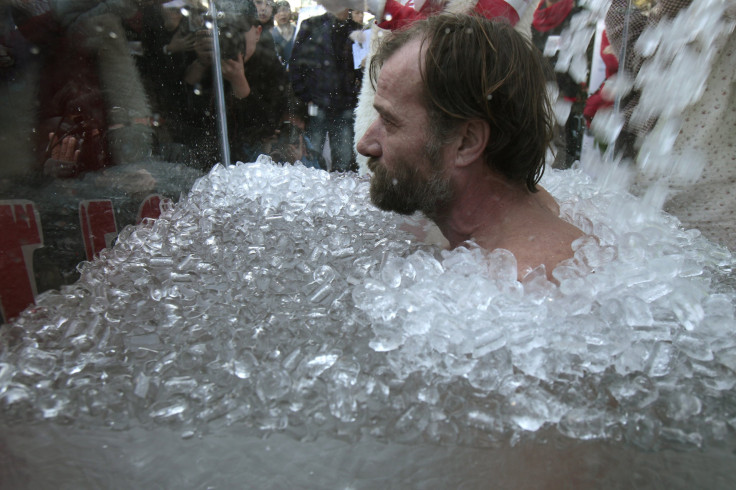Natural Inflammation Treatment: Breathing Exercises And Ice Baths May Quell The Immune System

When the body’s immune response is too pronounced or persistent, autoimmune diseases, such as rheumatism, can develop. Commonly scientists believe the body’s immune response cannot be controlled, but a new study suggests otherwise. Radboud University researchers say meditation, breathing exercises, routine exposure to cold (such as an ice bath), and other simple methods might help people activate their autonomic nervous system while simultaneously restraining their immune system.
The possibility of harnessing the immune system might be within reach. At least one person, though, has believed this all along and even used his own body to prove it.
The Iceman
Wim Hof — a Dutch daredevil whose motto is "we can do more than we think we can" — holds world records for "cold exposure." Hof believes he is able to influence his autonomic nervous system, the control system regulating the body's unconscious functions (such as heart rate, breathing, and digestion). Fascinated by Hof, researchers from Radboud University in the Netherlands asked him to participate in an experiment in 2011. While he was practicing his self-learned techniques, they injected him with an endotoxin.
This dead bacterial (and harmless) component basically tricks the body, causing a person to "develop symptoms such as fever and headache," Dr. Peter Pickkers, a professor of experimental intensive care medicine, explained in a press release. "We can therefore use this approach to investigate the immune system of humans."
Pickkers and his colleagues discovered Hof produced less than half the quantity of inflammatory proteins than a comparison group of healthy volunteers. Plus, Hof showed almost no flu-like symptoms.

Astounded by these results, the researchers decided to carry out a follow-up study and this time enlisted the help of 24 volunteers (all men). After dividing them into two groups, they trained one group for 10 days in meditation (third eye meditation), breathing techniques (cyclic hyperventilation followed by breath retention), and exposure to cold (immersions in ice cold water). The second group received no training.
Next, all of the participants were given an injection containing endotoxin, as had been done in the previous experiment with Hof. So what happened — how did the trained volunteers compare to the untrained volunteers?
The trained men produced more epinephrine as a result of their learned techniques. This stress hormone is released during increased activity of the sympathetic nervous system and it suppresses the immune response.
“In the trained subjects the release of inflammatory proteins was attenuated,” Dr. Matthijs Kox, an intensive care researcher at Radboud, stated, plus “they experienced far less flu-like symptoms.” Just like Hof!
Inflammatory Diseases
“This study could have important implications for the treatment of a variety of conditions associated with excessive or persistent inflammation,” wrote the authors in their study.
Inflammatory rheumatic diseases, which cause the immune system to attack the joints, muscles, bones, and organs, affect over seven million Americans, according to the American College of Rheumatology. Often lumped under the term arthritis, rheumatic disease is used to describe over 100 conditions. Among the most common inflammatory rheumatic diseases are rheumatoid arthritis, lupus, gout, scleroderma, juvenile idiopathic arthritis, Sjögren’s syndrome, and polymyalgia rheumatica.
Rheumatic diseases can cause chronic pain, disability, and even shorten a person’s lifespan. Like a homegrown terrorist, the immune system turning against the body is a terrible thing.
Source: Kox M, van Eijk LT, Zwaag J, et al. Voluntary activation of the sympathetic nervous system and attenuation of the innate immune response in humans. PNAS. 2015.



























